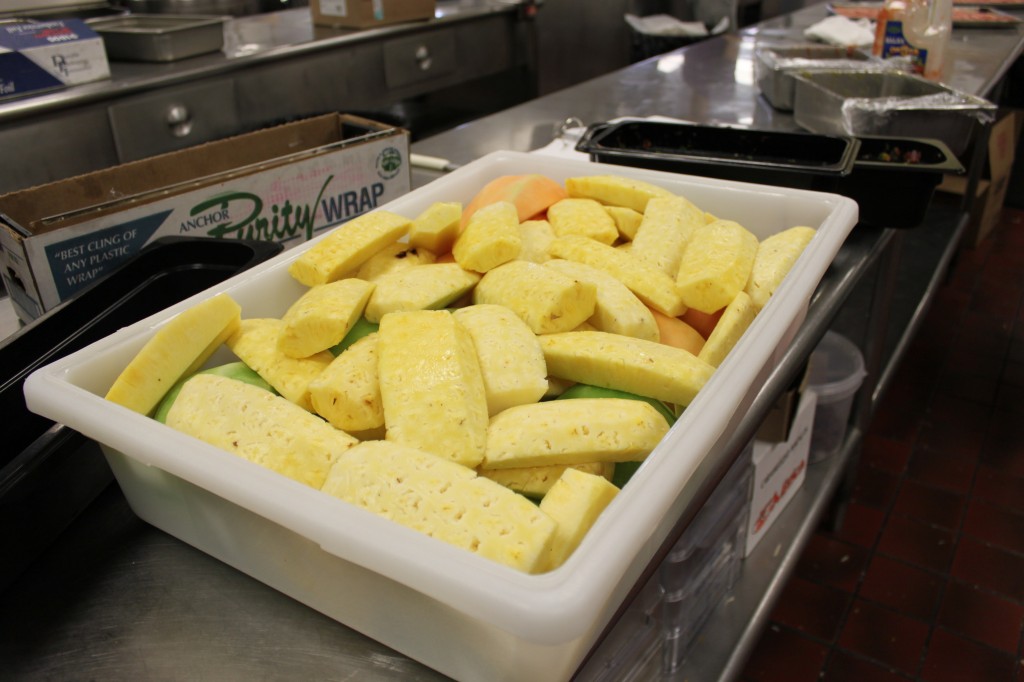Dining Services is re-evaluating its purchasing decisions because of record-high food prices nationwide, said Todd Empanger, director of Dining Services, and it could affect the variety of fresh produce in on-campus dining locations.

The worst freeze in 60 years wiped out entire produce crops in northern Mexico and the southwestern United States, causing cucumbers, tomatoes, peppers and other produce to quadruple in price.
St. Thomas is pulling back on some menu choices and listening to food vendors’ advice, Empanger said.
“Tomato supplies have dried up, and pepper prices have skyrocketed,” Empanger said. “So we are suspending purchases on a few of our produce lines and will be substituting other products.”
Students might not see as many fresh strawberries for breakfast in the cafeteria, Empanger said, because Dining Services is going to use higher-priced produce for events.
“For example, like strawberries, they go up to $40 compared to a $15 lug,” he said. “We’re still buying the fresh fruits, but just a few for higher events and we’re paying a lot higher price.”
Some students are concerned about how the limited variety will alter their dining experience.
“If there is less food to chose from, I’d feel slighted in a way,” freshman Joe McCullough said.
One thing St. Thomas students won’t have to worry about is a price increase for meal plans, because those prices are fixed and have already been decided for next year, Empanger said.
He said the Pit Stop in Koch Commons was another on-campus food venue affected by the price increase. The Pit Stop now carries a new branded product.
“They kept increasing their product cost, and their pricing, and Freshens was a branded product,” Empanger said. “We thought we could do a better job creating our own brand. So we worked with Blue Bunny ice cream to create a brand and actually lower the pricing structure because of the change and test out the market.”
Nationwide food prices climbed 0.5 percent in January, the biggest increase in more than two years.
“As is, students are struggling to pay,” sophomore David Brandes said. “Rising food prices are just going to make it harder.”
Empanger said students might have to modify what they buy at grocery stores as well.
“Buying in the grocery stores, they are going to make adjustments too when they’re looking for their favorite foods,” Empanger said. “They’re going to be like, ‘Whoa I can’t afford that.’”
He added that the effects of increasing food prices won’t disappear anytime soon.
“It’s going to be a really tough battle here I think for the next few months, just to find out until we get into the new crops,” Empanger said. “Hopefully by mid-summer it will taper off.”
Hannah Anderson can be reached at ande5385@stthomas.edu.


who cares about the prices. we pay a high price for all the meals anyway. Why can’t the caf just use the extra money that we pay with the price of the meals, and unused meals to get more produce? personally this article is a joke because the writers is favoring the caf.